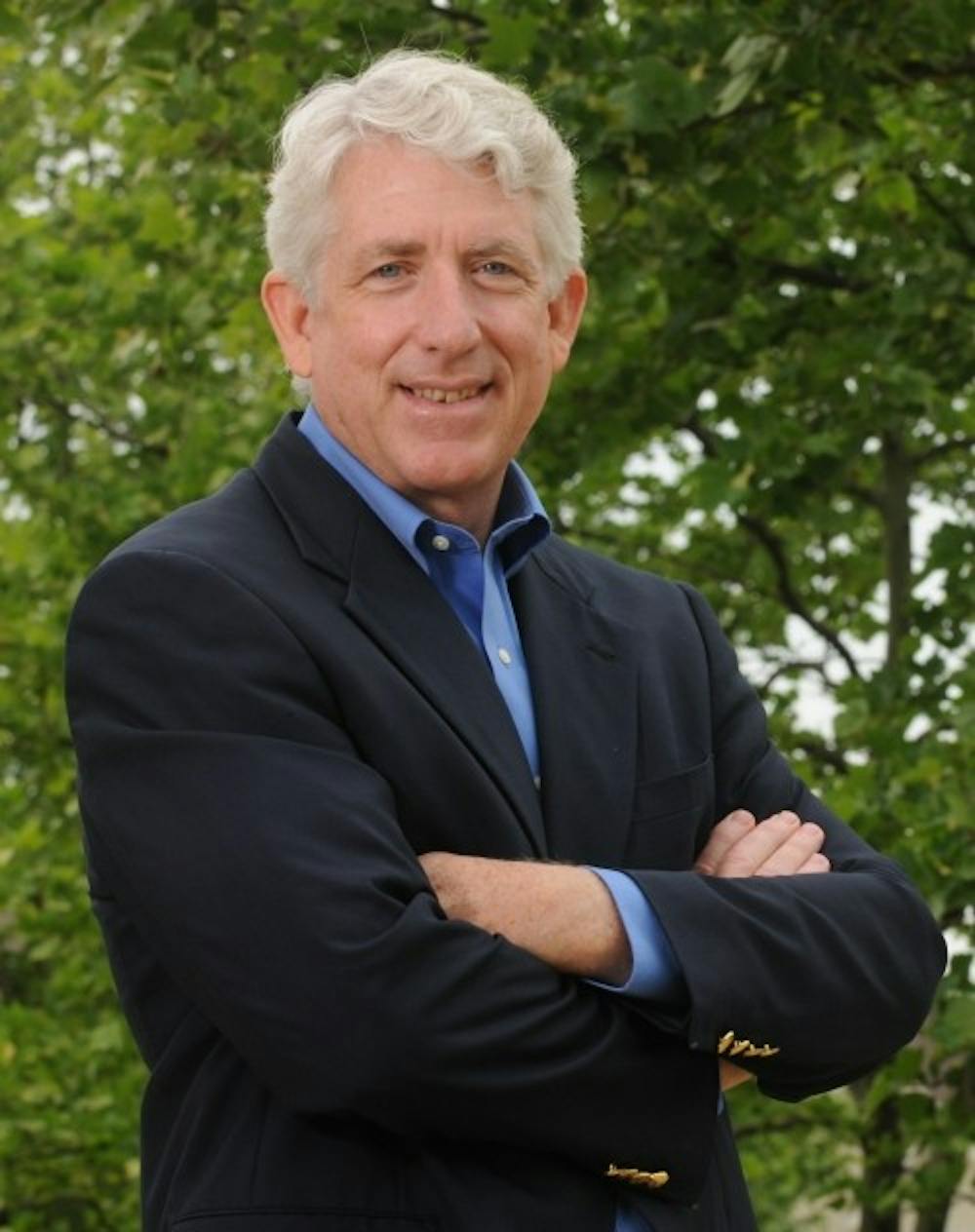Federal Judge Arenda L. Wright Allen ruled the Virginia prohibition of same-sex marriage was unconstitutional Thursday evening. The case, Bostic v. Rainey, challenged the state’s ban on same-sex marriage.
The plaintiffs included Norfolk residents and partners Timothy Bostic and Tony London, as well as Carol Schall and Mary Townley of Richmond. According to the case text, both couples are in long-term, committed relationships, and, except for their genders, meet all the requirements to legally marry in Virginia.
Wright Allen cited the 14th Amendment and other precedents in her opinion, including Loving v. Virginia, the famous Supreme Court decision striking down Virginia’s interracial marriage laws, in her opinion.
“Any Virginia law that bars same-sex marriage or prohibits Virginia’s recognition of lawful same-sex marriages from other jurisdictions [is] unconstitutional,” Wright Allen said in her opinion. “These laws deny Plaintiffs their rights to due process and equal protection guaranteed under the Fourteenth Amendment of the United States Constitution.”
Wright Allen stayed the ruling, meaning no part of the ruling may be enforced immediately. Those defending the state’s ban on same-sex marriage will appeal the decision up to the Fourth Circuit Court of Appeals, one step away from a potential Supreme Court hearing.
Law Prof. Edward White said in an email the judge’s opinion focused on the 14th Amendment’s Due Process Clause, which offers citizens certain protections under a right to privacy, as famously introduced in the 1965 Supreme Court decision Griswold v. Connecticut, and the Equal Protection Clause, which grants all citizens “equal protection” under the law.
“[T]he argument that ‘federalism’ requires states be given autonomy [on] same-sex marriage founders on the ground that federalism cannot justify a state’s passing laws that are unconstitutional,” White said in an email. Federalism is the separation of powers between states and the federal government.
Virginia Attorney General Mark Herring, who refused to defend the state’s ban on same-sex marriage in federal court, celebrated the decision.
“This decision is a victory for the Constitution,” Herring said in a statement Friday. “It is the latest step in a journey towards equality for all Virginians, no matter who they are or whom they love.”
Peter Finocchio, fourth-year College student and chair of University College Republicans, said in an email the Attorney General neglected his duty to defend the laws of the Commonwealth.
“I don’t think that Mark Herring has an obligation to defend laws which he believes to be unjust or unconstitutional,” Finocchio said. “However, he has a duty to ensure that the Commonwealth’s laws are defended by someone.”
In the statement, the office of the Attorney General said the Circuit Court Clerks of Norfolk and Prince William County, due to their positions, were defending the ban, so his office did not need to get involved.
Herring said the legal proceedings surrounding this case will be ongoing.
Third-year College student Blake Calhoun, co-president of the Queer Student Union, said the push for legalizing same-sex marriage had moved faster he anticipated.
“This is as close [as] Virginia has been to marriage equality, so this ruling is incredibly meaningful to many Virginians,” Calhoun said in an email.
White said Wright Allen’s opinion adds to the growing trend of courts, legislatures and public opinion advocating for same-sex marriage. Laws discriminating on the basis of sexual orientation, White said, will soon be seen similarly as those which discriminate based on race or gender.
“[Discriminatory] actions,” White said, “are inconsistent with [the] foundational American principles of fairness and equality embodied in the constitution.”
Finocchio said he did not believe federal judges should decide the issue of marriage. Rather, states and the officials the public elects to run them should have the final say on such social policy questions. He disputed Wright Allen’s conclusion that Virginia law limits marriage.
“I think that when judges deliver rulings like these it stifles the public discourse,” Finocchio said, “especially [decisions] that sweep aside amendments passed by 56 percent of voters.”
Finocchio said same-sex marriage would likely be legal in every state in America within the next 20 years, but such decisions were better made by elected representatives than courts. Finocchio said those defending traditional marriage had a strong historical and legal argument to make.
“Marriage has always been defined as between one man and one woman,” Finnochio said.
Calhoun said she could not overstate the importance of same-sex marriage, but for her personally, other issues facing the LGBTQ community take precedent, such as violence faced by transgendered individuals.
“As students, marriage, does not directly affect us at this time in our life,” Calhoun said. “LGBTQ youth make up nearly 40 percent of this [nation’s] homeless population. In the state of Virginia I can be fired for being openly gay.”
Calhoun cautioned the LGBTQ movement against focusing on just one issue.
“Now … marriage has more momentum than ever,” Calhoun said. “Hopefully we can step back and broaden our focus. Marriage is not a catchall. This is [a] step in the right direction, but not the end of our journey.”
Finocchio said he feared judicial activism on the issue of marriage could lead to expanded court involvement on fiscal issues as well.
“The legalization of gay marriage is something I neither fear nor loathe,” Finocchio said. “But as a fiscal conservative and a strict constructionist, I very much fear the implications of too much judicial activism on any issue.”







